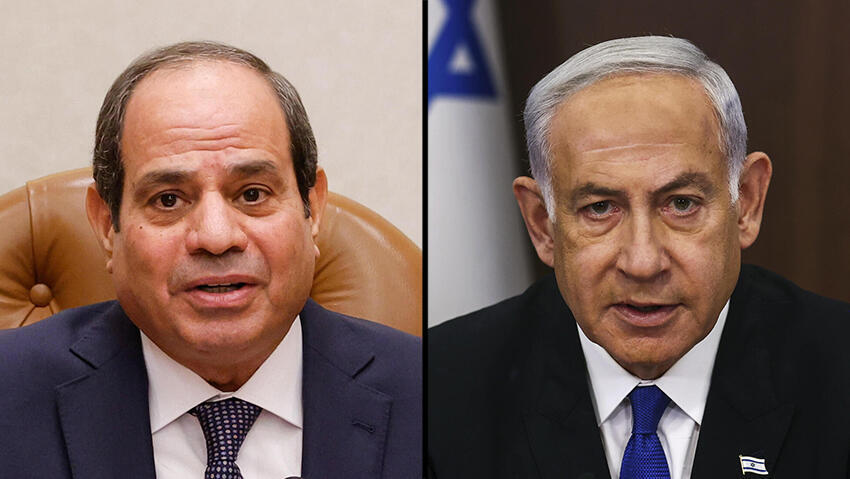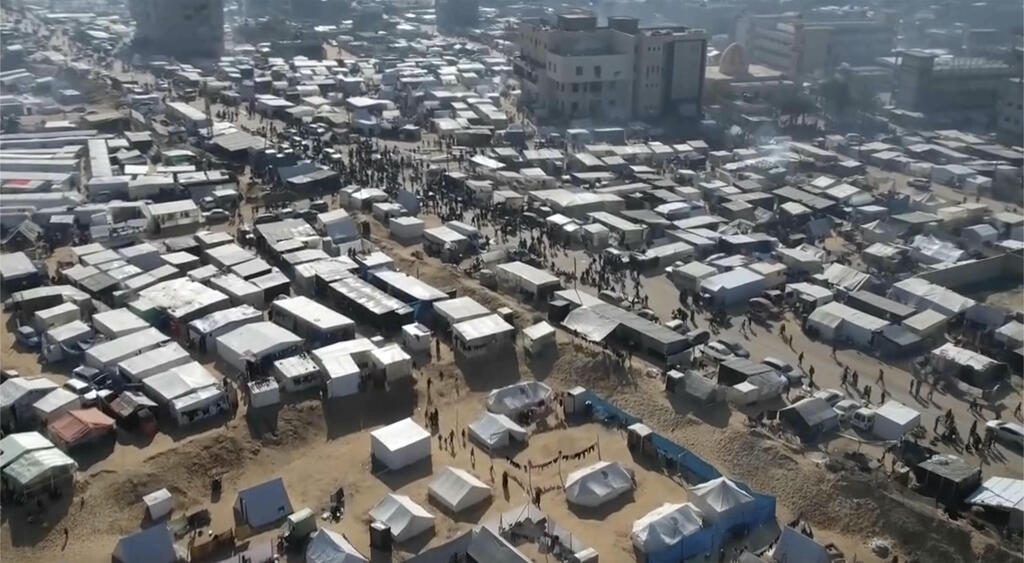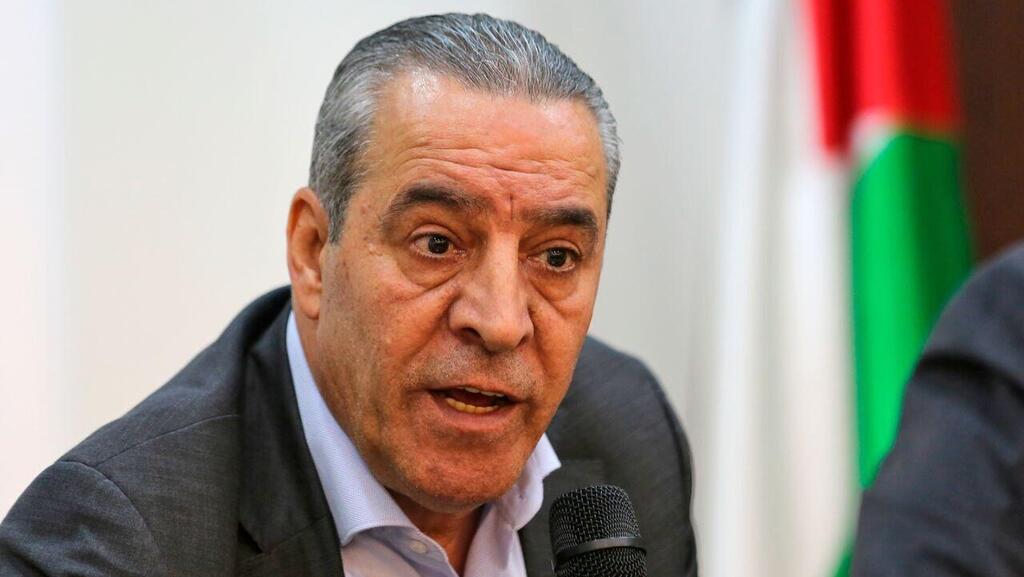Getting your Trinity Audio player ready...
Israel and the United States were working to formulate plans to deal with a possible subterranean escape route in the Philadelphi Corridor along the Gaza border with Egypt, ministers were told in the weekly cabinet meeting on Sunday.
More stories:
Prime Minister Benjamin Netanyahu, Defense Minister Yoav Gallant said that one course of action suggested was for the U.S. to fund the construction of a subterranean obstacle, similar to the one built on the Gaza-Israel border.
3 View gallery


Egyptian President Abdel Fattah el-Sisi, Prime Minister Benjamin Netanyahu
(Photo: EPA, AP)
Netanyahu has been emphasizing the importance of Israeli control over the corridor in recent public statements despite push back from Egyptian officials. Israel's concerns in addition to the continued flow of weapons into the Strip, was the the Hamas leadership would be able to use underground tunnels to escape from the IDF forces hunting them down in the ground offensive and even take Israeli hostages out of Gaza and move them anywhere in the world.
"The Philadelphi Corridor, or more accurately, the southern barrier, must be in our hands and must be closed. Any other arrangement would not guarantee the creation of a buffer zone we want and need to ensure,” Netanyahu said in a press conference on Saturday.
The Philadelphi Corridor was the name given to Salah al-Din Road, that runs for 14 kilometers (8.7 miles) along the Egyptian border from east to west. The peace agreement signed in 1979 between Egypt and Israel, imposes restrictions on the deployment of military forces on both sides of the corridor.
Israel controlled the Philadelphi Corridor until withdrawing from Gaza in 2005 when it was transferred to the Palestinian Authority which then ruled over Gaza. A new agreement signed with Egypt, regulated the presence of forces and specified the security coordination between Jerusalem and Cairo.
Since then, Egypt deployed a limited military force with its official goal being to prevent infiltration and smuggling into the country. But despite Egyptian assertion that it had destroyed tunnels connecting Gaza to the Sinai desert, the amount and quality of weapons and weapon systems revealed to be in the Hamas arsenal, indicated that the effectiveness of the Egyptian efforts was limited.
Egyptian parliament member Mustafa Bakri posted a condemnation of Netanyahu's stated intentions in a post on X on Monday. "When Netanyahu says that the Philadelphi Corridor on the Egyptian border should be under Israeli control, it is a blatant attack on the peace agreement between the two countries. Don't get closer; the Egyptian border is a red line. It seems you’re not aware of the capabilities and strength of our army."
Hussein al-Sheikh,Secretary-General of the Executive Committee of the PLO, recently said any Israeli presence on the Palestinian side of the border would be clear indication of Israel's intent to continue its occupation of Gaza. "This requires a unified Palestinian-Arab decision to deal with the consequences," he said.
During the war in Gaza, the IDF attacked areas close to the Philadelphi Corridor several times, resulting in the death of four Palestinians. Qatari based Al-Jazeera network's military analyst, Fayez Al Duwairi, recently said the move was part of Israel's plan to tighten the blockade on the Gaza Strip.
"The occupation’s army is trying to besiege the Gaza Strip by controlling the Philadelphi Corridor bordering Egypt. The resistance will not accept this, as it implies isolating the Strip from the world entirely," he said.




